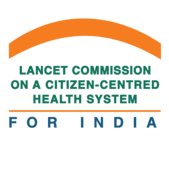In Conversation: Sanghamitra Singh, Health Scientist and Senior Manager, Knowledge Management and Partnerships at Population Foundation of India
November 3, 2021

I am a cell biologist by training, with a PhD from the George Washington University, Washington DC. My doctoral dissertation focused on pathophysiological mechanisms contributing to type 2 diabetes. During the course of my PhD, I collaborated with researchers at National Institutes of Health Maryland, Federal Drug Administration (FDA) Maryland. Prior to my PhD, I also had a brief stint as a visiting researcher at the Ajinomoto Corporation, Tokyo, Japan.
Although I am a scientist by training, I describe myself as a thinker, writer and communicator by trade. While researching for my dissertation I was extremely intrigued by the multifactorial nature of diseases and yet how we often end up viewing them only as a set of symptoms. Social determinants of health that impact health equity and health outcomes are often neglected in the scientific discourse. Despite the scientific and advancements which have enabled us to cure diseases and prolonglives, it was alarming for me to discover the widening gaps in health outcomes, especially in countries like India.
When I moved back to India in 2017, I joined Population Foundation of India, a national NGO, which promotes and advocates for the effective formulation and implementation of gender-sensitive population, health and development strategies and policies. As the technical expert on health and a member of the research and evaluation team at Population Foundation of India, I have supported the process of policy formulation and led the development and dissemination of research studies and knowledge products across multiple contexts and domains. I have written extensively on the need for a gender-sensitive and inclusive approach to the formulation of health-related policies and programme implementation.
I am a Commission Fellow with the Citizens’ Engagement workstream of the Lancet Citizens’ Commission as well as a member of the research secretariat which has been working across the five workstreams on the primary research component (which includes evidence synthesis and stakeholder consultations). Under the guidance of the research mentors Dr Patel and Dr Kang, I worked with the Commissioners on developing initial protocols for fundraising, stakeholder consultations as well as finalizing research questions.
According to me, the biggest gap in achieving UHC in India is the prevailing gap between policy formulation and programme implementation. In other words, while we have progressive policies, they are often not implemented as envisioned and do not always achieve the intended health outcomes, including reduced health inequity. These gaps in implementation are a result of a number of factors such as lack of adequate budgetary allocation for health (India has one of the lowest health budgets in the world), lack of quality of care and persistent gender-based inequalities which often prevent women from accessing health services.
The other major barrier to achieving UHC in India is the start of interstate and inter-regional disparities in health and development indicators. Reaching the last mile, therefore, requires moving away from a one size fits all approach to a targeted, context-specific approach bearing in mind the distinct health needs of different population groups.
The Commission is a first of its kind attempt to view health care beyond its traditional definitions and include the voices of ‘citizens’ or users of health services. The Commission’s research focuses not only on the distinct challenges faced by population groups in accessing health services but also on solutions to overcome these challenges as well as documenting best practices that need to be scaled up. Findings from the Commission’s research and work will be instrumental in informing health-related policies and programmes with the voices of citizens, and will be a critical step towards achieving UHC.
